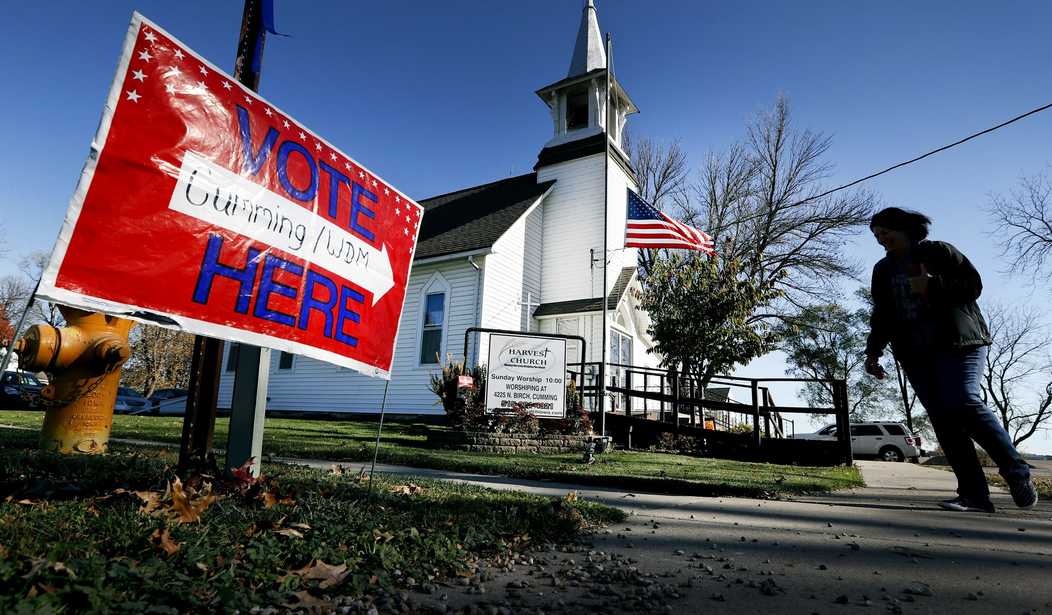Opponents of the National Popular Vote Interstate Compact often rely on red-herring arguments to defend the status quo. Chief among them is an objection I like to call the “small state shuffle”. The opposing argument goes something like this: ‘The Electoral College is there to protect the small states and most small state voters are Republican. Therefore, the current system is good for small states and by extension Republican candidates for president.’ When confronted with facts counter to this inaccurate narrative, they claim you are a shill for liberal Democrats.
Let me take the last piece first. Like President Trump, I am a Republican who supports putting greater emphasis on the national popular vote for president. I also support preserving our Electoral College system. As a Republican activist, I have served in three New England states, including my home state of Connecticut, in several capacities including as chairman of a statewide party auxiliary, as a member of a presidential campaign steering committee, and as a candidate for statewide office.
Two of those states, Connecticut and Rhode Island, are Democrat-controlled small states, each with seven and four electoral votes, respectively. Despite this, I have participated in presidential hustings because I believe small state voters trapped behind a blue or red wall should have a politically relevant voice in presidential elections. As a small state conservative leader, I support the National Popular Vote Interstate Compact – a proposal that preserves the state power to award electors and guarantees the presidency to the candidate who wins the most popular votes in all fifty states and the District of Columbia anytime there are states with more than 270 electoral votes (a majority of the Electoral College) in the agreement.
One of the great misconceptions is that small states benefit from the current state-based winner-take-all system. The fact is 11 of the 13 smallest states were totally ignored in the 2008, 2012, and 2016 presidential elections. Rhode Island was ignored in the general election because it was clear the Democrat would win the popular vote and, by extension, get all of Rhode Island’s electoral votes. Alaska was ignored because it was clear the Republican would win there. A vast majority of the smallest states – those with 4 electoral votes or fewer – are politically ignored in presidential elections because their politics are dominated by one major party or the other. This lack of political relevance diminishes the effective influence of our states over sitting presidents.
Recommended
Another misconception is that Republican voters dominate small states. In fact, a majority of small states have gone Democratic in six of the last seven presidential elections. Another New England state where I have served the Republican Party in a number of capacities is New Hampshire, originally a red state, most recently a purple state, but becoming bluer each election.
Regardless of their political makeup, small fly-over states do not have three electoral votes to make battleground state voters more relevant. They have three electoral votes to maximize the political influence of the citizens of their respective states. The current system fails small states by every measure.
The 12 small non-battleground states (excluding New Hampshire) have a combined population of a little more than 11 million people. Ohio has almost the same population of these 12 low population states. The 12 small states have 40 electoral votes, whereas Ohio has 18 electoral votes. The 11 million people living in the battleground state of Ohio, received 73-post-convention campaign events in 2013 while the 11 million in the non-battleground small states received three visits total (all in Maine’s 2nd Congressional District). North Dakota was wholly ignored, as was Delaware, and eight of America’s smallest states.
In short, political power under the current state-by-state winner-take-all method of awarding electoral votes does not arise from the number of electoral votes a state possesses. Instead, political power comes from whether a state is closely divided politically.
With National Popular Vote, every voter, in every state, will be politically relevant in every presidential election. A Republican in Connecticut or Rhode Island will be every bit as relevant as a Democrat in Idaho. No longer will small state voters be making “get out the vote” calls in the closest battleground state – as Republicans and Democrats routinely do in Delaware or Rhode Island, where phone banks dial into the battleground state of Pennsylvania. Instead, we will focus on turn out in our own states, because every voter, in every state, will have a meaningful impact on the outcome of the race.
Let’s have a serious discussion about how we elect the president of the United States. Let’s evaluate the National Popular Vote Interstate Compact for what it is and the problems it can help address. Let’s not focus on red-herring arguments, based on flawed civics and historical ignorance.
I am a conservative. I am a small state Republican. And, I support the National Popular Vote Interstate Compact. I want every voter, in every state, to be politically relevant in every presidential election.

























Join the conversation as a VIP Member